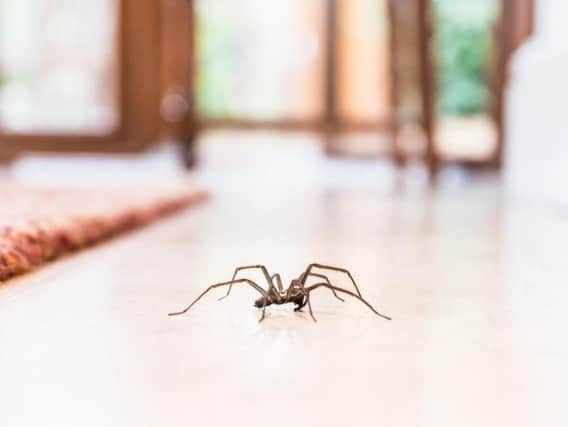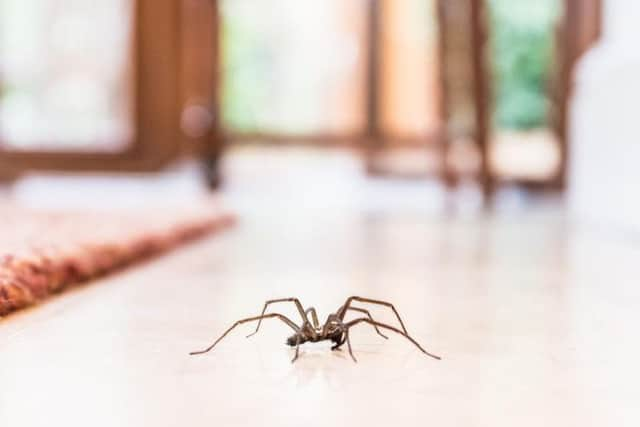UK spider season falls early after unusually wet summer


Unfortunately, it has arrived early this year. Here’s everything you need to know.
What is spider season?
Usually we see spider season in early autumn, generally around the beginning of September.


Advertisement
Hide AdAdvertisement
Hide AdThis is because male spiders have spent the summer filling up on a steady diet of flies, moths and other insects, and have become sexually mature - thus they head indoors in search of a mate.
Why is it here early?
It’s all down to the weather - thanks to the wetter August we’ve been having, it has triggered a premature mating season.
The heavy rainfall and mixture of cooler conditions and heat waves is encouraging the spiders inside.
How to keep spiders out of your house
These are some tips and tricks to keep your house as spider free as possible:
Advertisement
Hide AdAdvertisement
Hide Ad- Keep your house clean and airy with regular vacuuming and dusting
- Keep your house filled with natural light and try to avoid keeping the blinds or curtains closed during the day or for long periods of time - spiders love dark and hidden locations
- Invest in essential oils - strong scents will ward off spiders, so things like tea tree, rose, citrus, peppermint and lavender and all work
- Seal up any cracks that could allow a spider into your house, or to use it as a hiding hole - grab a caulking gun and target spider access points like the walls, floors and ceilings
Spider bites
Advertisement
Hide AdAdvertisement
Hide AdThe NHS says, “Bites from spiders in the UK are uncommon, but some native spiders – such as the false widow spider – are capable of giving a nasty bite.”
Spider bites will leave small puncture marks on your skin, which can be painful and also cause redness and swelling.
To treat an insect bite or sting, the NHS advises:
- Wash the affected area with soap and water
- Apply a cold compress or ice pack to any swelling for at least 10 minutes
- Avoid scratching the affected area, as this can increase the possibility of infection
Advertisement
Hide AdAdvertisement
Hide Ad- Avoid traditional home remedies such as vinegar and bicarbonate of soda, as they’re not very likely to help
The pain, swelling and itchiness can sometimes last up to a few days, so ask your pharmacist about medicine that can help, such as painkillers, creams for itching and antihistamines.
Some spider bites can also cause:
- Dizziness
- Nausea
- Sweating
The NHS says, “Get medical help immediately if you have any severe or worrying symptoms after a spider bite.”